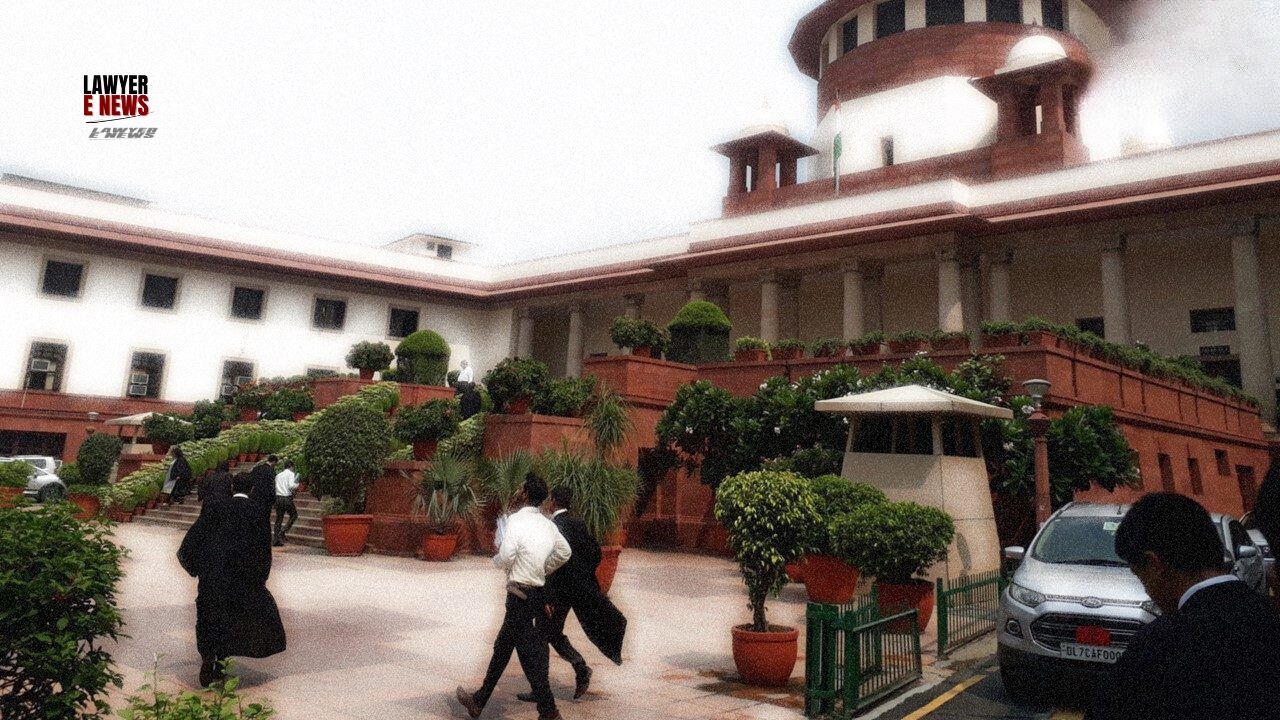-
by Admin
15 February 2026 5:35 AM



Supreme Court of India dismissed an appeal by the Secretary, Public Works Department & Ors., challenging the entitlement of temporary employees to public holidays, including the 2nd and 4th Saturdays, and overtime pay. The Court upheld the Industrial Court's and Bombay High Court's decisions, affirming that the benefits under the Kalelkar Award applied to the respondent-employees despite the appellants’ reliance on a 1996 Government Circular to deny such entitlements.
Kalelkar Award Overrides Later Circulars Denying Holiday Benefits. In this judgement, the Supreme Court reaffirmed that the Kalelkar Award entitles non-daily wage temporary employees to holiday benefits and overtime pay, which cannot be negated by later Government Circulars.
On September 19, 2024, the Supreme Court of India, in the case of The Secretary, Public Works Department & Ors. vs. Tukaram Pandurang Saraf & Ors., dismissed the appeal challenging the entitlement of temporary employees to public holidays and overtime compensation under the Kalelkar Award. The core issue was whether the respondent-employees, who worked as temporary employees in the Public Works Department, were entitled to these benefits. The Court ruled in favor of the employees, rejecting the appellants' arguments based on a 1996 Government Circular.
The case began when respondent-employees, appointed in various roles such as Mailmujar and Mali between 1982 and 1997, claimed benefits under the Kalelkar Award, including holidays on 2nd and 4th Saturdays and overtime pay for work on those days. After repeated requests were denied by the appellants-employer, the employees filed a complaint with the Industrial Court under the Maharashtra Recognition of Trade Union and Prevention of Unfair Labour Practices Act, 1971.
The Industrial Court ruled in favor of the employees in 2009, directing the appellants to provide the claimed benefits. The Bombay High Court upheld this decision in 2014. The appellants then appealed to the Supreme Court.
Entitlement to Holiday Benefits: Whether temporary employees working under the Kalelkar Award are entitled to public holidays, including the 2nd and 4th Saturdays.
Applicability of Government Circular: Whether a Government Circular from 1996, which limited certain holiday benefits, could override the provisions of the Kalelkar Award.
Unfair Labour Practice: Whether denying these entitlements constituted unfair labor practices under the Maharashtra Act.
The appellants argued that the employees were temporary and therefore not entitled to the same benefits as permanent employees. They cited a Government Circular issued on May 27, 1996, which purportedly excluded certain employees from holiday benefits and overtime pay.
The respondents contended that the Kalelkar Award, a binding agreement regulating the service conditions of temporary and permanent employees in the Public Works Department, granted them the holiday benefits and overtime pay. They further argued that the Circular did not apply to them and that the denial of benefits amounted to unfair labor practices.
Justice Sandeep Mehta, delivering the judgment, reaffirmed the employees' entitlements under the Kalelkar Award. The Court held that the Award explicitly provided for holiday benefits, including the 2nd and 4th Saturdays, for all employees except daily-wage workers.
Kalelkar Award Prevails: The Court noted that the Kalelkar Award, which came into effect in 1967, remained the governing law for the employees’ entitlements, and that subsequent Circulars like the one from 1996 did not override the Award’s provisions. As stated in the judgment, “All employees except daily-wage workers are entitled to public holidays and overtime pay for working on holidays under the Kalelkar Award” [Paras 20-21].
Misapplication of the 1996 Circular: The Court dismissed the appellants’ reliance on the 1996 Circular, stating that it did not apply to the respondent-employees, who were part of the Converted Temporary Establishment under the Kalelkar Award. The Circular was only applicable to disposed and pending cases before the Industrial Court at Bombay and did not affect the employees covered by the Award [Paras 22-23].
Unfair Labour Practices: The Court found that the appellants had engaged in unfair labor practices by denying the employees their rightful benefits under the Kalelkar Award. The Industrial Court and the High Court had correctly identified this violation, and the Supreme Court saw no reason to interfere with those findings [Paras 8-9].
The Court further noted that the employees were working under the Converted Temporary Establishment, which entitled them to the full range of benefits under the Kalelkar Award, including holidays and overtime compensation.
The Supreme Court upheld the judgments of the Industrial Court and the Bombay High Court, reaffirming the employees' entitlements to public holidays and overtime compensation under the Kalelkar Award. The appeal was dismissed, and the appellants were directed to comply with the Industrial Court’s order within eight weeks. There was no order as to costs.
Date of decision: 19/09/2024
The Secretary, Public Works Department & Ors. vs. Tukaram Pandurang Saraf & Ors.
